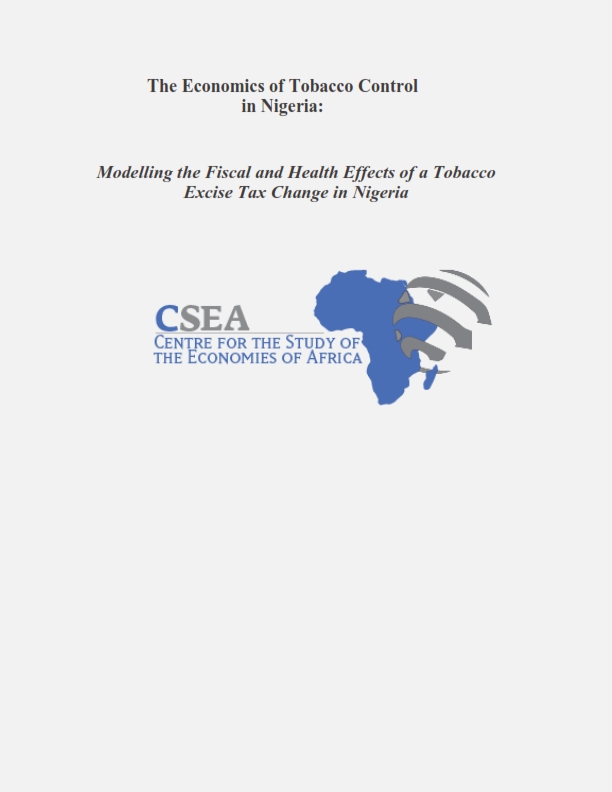In Nigeria, a majority of the adult smoking population (15 years and above) consume tobacco primarily in the form of cigarettes. Nigeria has about 6 million adult smokers, or 5.6 percent smoking prevalence (GATS, 2017). Smoking prevalence is significantly higher for men (at 10 percent) relative to women (1.1 percent), and 18 percent of Nigerian youths between the ages of 13 to 15 years smoke (GATS, 2017). A total of 920 million cigarette packs were consumed in Nigeria in 2015 (GlobalData Plc., 2016), of which 74 percent is domestically produced (NCS, 2015). Tobacco related diseases are responsible for about 17,500 deaths per year (about 207 men and 130 women per week) and about 250,000 cancer diagnoses (Tobacco Atlas, 2015). Economic losses in the form of medical treatments and loss of productivity from tobacco-related diseases is estimated at US$ 591 million in 2015 (Tobacco Atlas, 2015).
Project Reports

August 10, 2018
The Economics of Tobacco Control in Nigeria: Modelling the Fiscal and Health Effects of a Tobacco Excise Tax Change in Nigeria
In Nigeria, a majority of the adult smoking population (15 years and above) consume tobacco primarily in the form of cigarettes. Nigeria has about 6 million adult smokers, or 5.6 percent smoking prevalence (GATS, 2017). Smoking prevalence is significantly higher for men (at 10 percent) relative to women (1.1 percent), and 18 percent of Nigerian […]
Read →
Related
Nigeria Economic Update (Issue 46)
On a Month-on-Month basis, average growth rate of selected food prices decreased in October 2017. Precisely, contracting by 1.24 percent in October, average growth rate fell from 0.08 percent recorded in September 2017. Notably, the contraction reflected in the food sub-index of the headline inflation for October 2017. The marginal decrease in the prices of selected food items may be in line with seasonal levels, as the harvest season reaches its peak, thus making food items relatively available at various demand levels. Going forward, investment towards the provision of better farming inputs, technology, financing, and value addition across the agricultural value chain could help improve yield output and food security all through the year.
